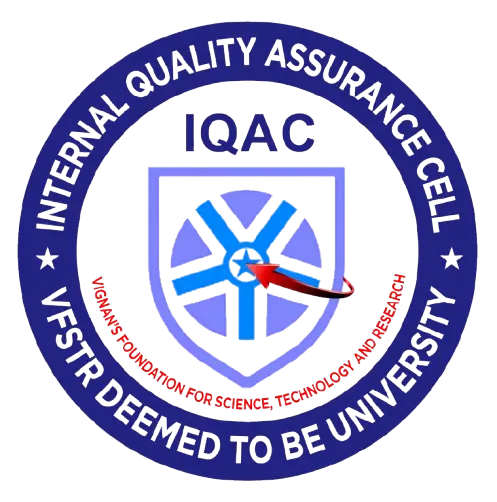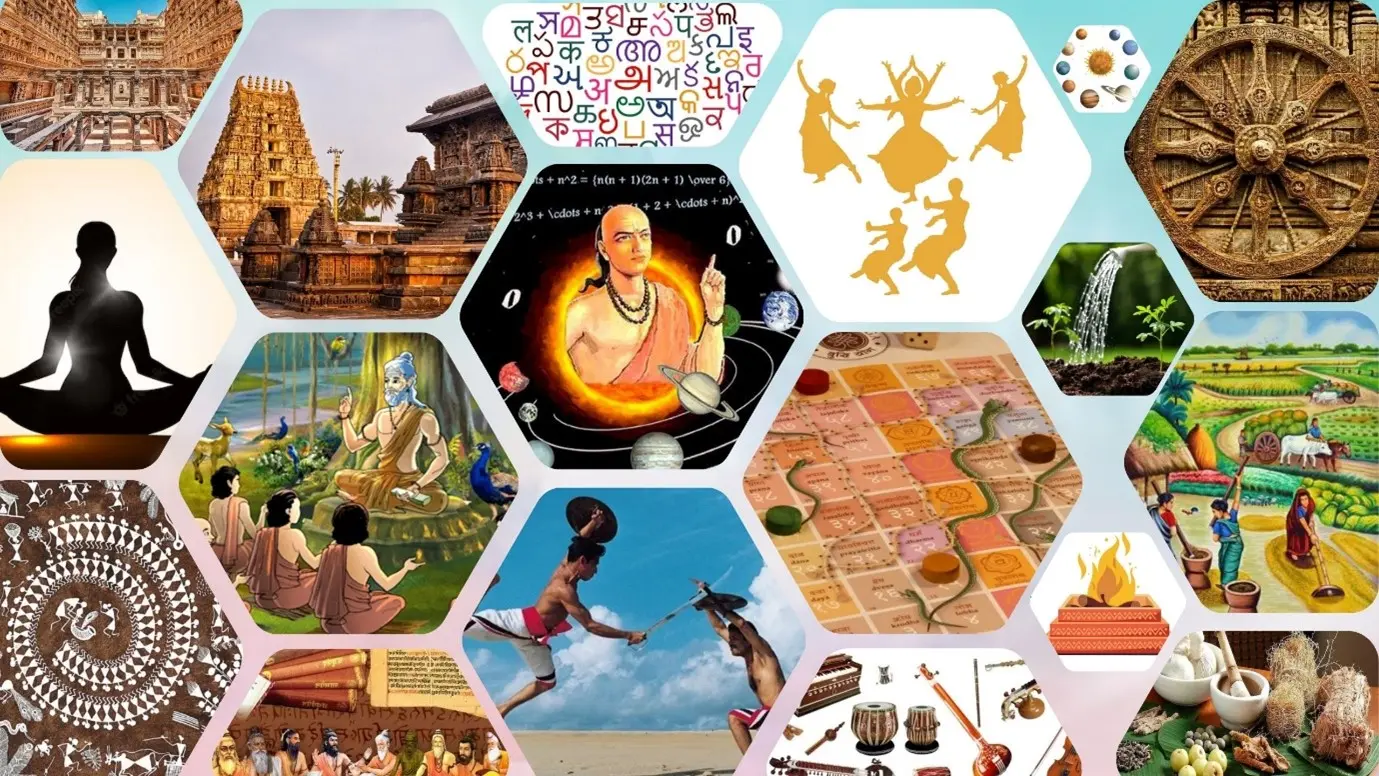

-
HYD Campus
-
International Students
-
New Student
-
Convocation LIVE
-
Alumni
-
FIP
-
Webmail

The Centre for Indian Knowledge Systems (IKS) initiative at Vignan’s Foundation for Science, Technology & Research (Deemed to be University) is established to promote, preserve and integrate India’s vast and diverse intellectual heritage into contemporary education and research. Rooted in civilizational knowledge spanning thousands of years, IKS encompasses traditional sciences, mathematics, arts, architecture, health systems, ecology, governance, linguistics, literature and philosophical thought.
The IKS Cell aligns with the mandate of the Ministry of Education (MoE), Government of India and the Indian Knowledge Systems Division (IKS Division) of AICTE, with the objective of bridging ancient wisdom and modern learning.

Srikalahasti Kalamkari showcases the rich interplay of art, natural materials and cultural story-telling. At Vignan’s Foundation for Science, Technology & Research (Deemed to be University), we view it as a living knowledge system linking craft, ecology and heritage.
The Durgi stone carving tradition from Durgi village in Andhra Pradesh represents a living heritage of sculptural mastery — transforming the region’s unique soft limestone (Sudda Rai) into exquisite idols, forms and decorative art. With techniques rooted in ancient Shilpa Shastra and a lineage of artisan families, it stands as a compelling example of how indigenous knowledge systems continue to shape craft, culture and community.
Kondapalli wooden toys embody craftsmanship rooted in local ecology and tradition, a fine example of how knowledge of material, form and culture merges.
The Budithi brassware tradition demonstrates how metallurgical know-how and cultural practice come together in a local knowledge system.
The craft village of Etikoppaka near Visakhapatnam is famous for its eco-friendly wooden toys made with natural lac dyes extracted from organic sources. The technique, known as lacquer turned wood, uses Ankudu wood and vegetable-based colours, representing sustainable design, non-toxic material science and traditional rural economics.
The rich repository of wild-plant knowledge among Andhra Pradesh’s rural communities highlights how traditional ecological wisdom forms an integral part of IKS.
Kurnool district has long been a centre for indigenous herbal healing, mud therapy and non-invasive treatments rooted in Ayurveda, Siddha and Desi Chikitsa. Local healers preserve plant-based medicinal knowledge passed down orally through generations, representing India’s Lok Vaidya parampara (folk medicine).
Andhra Pradesh’s village tank systems reflect a centuries-old knowledge system of water harvesting, community governance and sustainable agriculture.
Kuchipudi, originating from the village Kuchelapuram in Krishna district, is one of India’s eight classical dance forms. It combines expressive storytelling, music, rhythm and graceful movements with deep roots in Natya Shastra. Traditionally performed by male Brahmin dancers, it evolved into a globally respected art form, preserving Indian aesthetics, Sanskrit theatre and devotional philosophy.
The Tirumala temple stands as a unique example of ancient Vaastu Shastra, rock-cut engineering and sacred ecosystem planning. The temple complex includes traditional water harvesting systems such as Pushkarini tanks and a self-sustaining hill ecosystem that has supported pilgrims for centuries — a living example of Indian civil engineering and ecological wisdom.
Koneru are ancient freshwater tanks found near temples and settlements across Andhra Pradesh, functioning as water reservoirs, groundwater recharge systems and sacred community spaces. Built using mathematical measurement systems and stone architecture, they represent traditional Indian hydrology and sustainable water governance still relevant to climate-resilient planning.
Kalingapatnam, once a major coastal trade centre, reflects India’s ancient shipbuilding, navigation and spice trade networks connecting Southeast Asia. Archaeological evidence shows use of solar and star navigation, traditional boat carpentry and salt-production techniques — an example of indigenous ocean technology long before European navigation.
Dr. D. Adam Stephen
Director, Centre of IKS
Associate Professor and HoD, SS&H